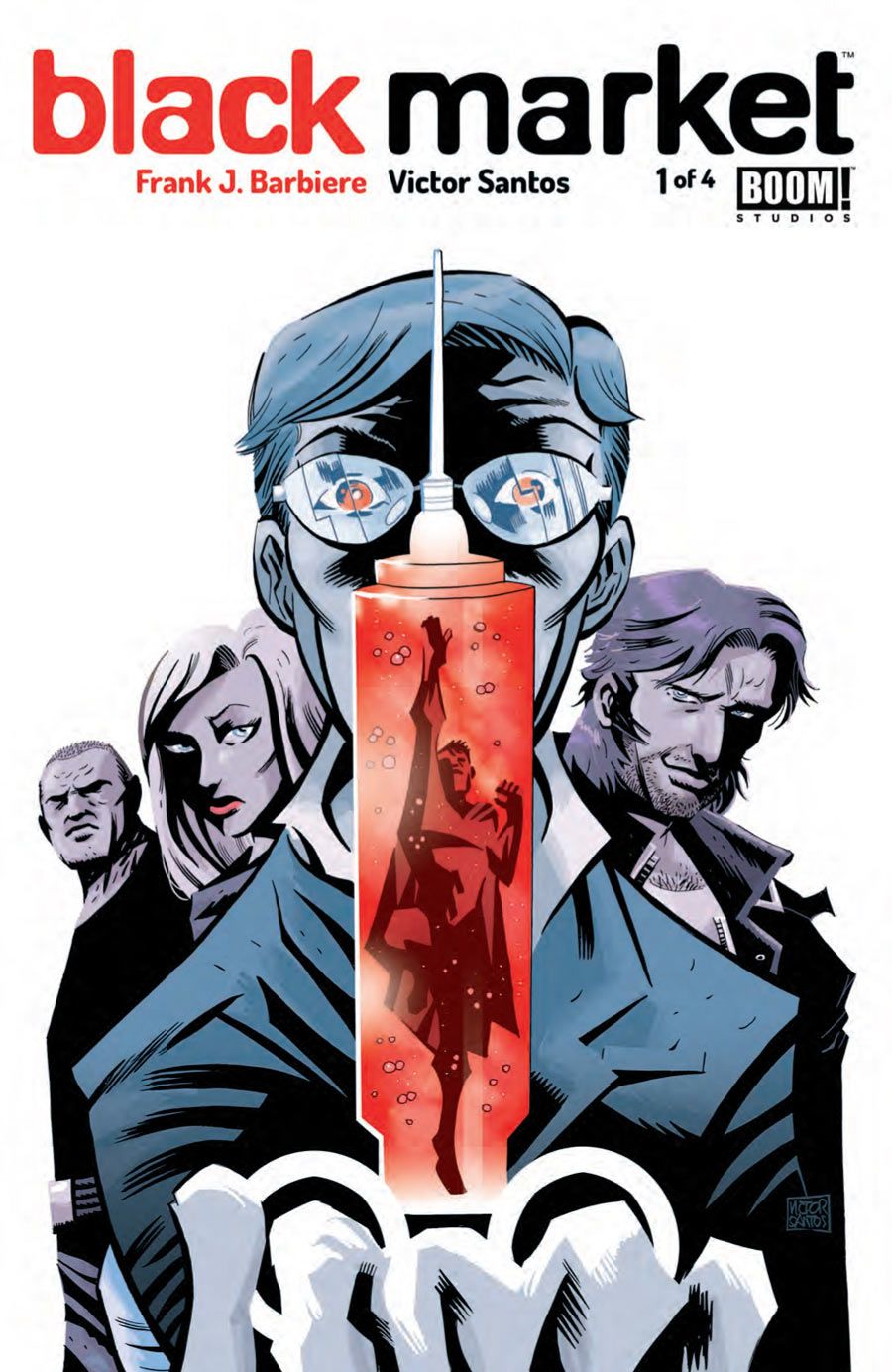In Frank J. Barbiere and Victor Santos' "Black Market," Raymond "Ray" Willis has fallen on hard times since he was forced out of his medical examiner position, working a low-paying job at a funeral home that has him barely scraping by as he and his wife Shannon try to cope with her MS diagnosis. So, when his brother stops by with a tantalizing offer, Ray soon finds himself embroiled in a dangerous operation: hijacking superheroes to take and study their DNA. In its debut, "Black Market" #1 lays some solid groundwork for the miniseries with excellent pacing, deft world building and inspired character design.
Right from the outset, Barbiere and Santos never shy around the fact that this is a superhero story, playing into comic book tropes like the tall, blond super and the daring rescue from a burning building. However, once the story and its themes have been established within the first few pages, they move into the real meat; they happily flip the cliche before it gets tiresome, using the recognizable scene only as quick, efficient world building, if only because such a scene is so utterly familiar. It establishes the groundwork swiftly and easily, so much so that the story's world feels rich and developed early on, which leaves a lot of room to play.
Likewise, the exposition moves quickly in one particularly stunning page with succinct writing and a gorgeous compilation of heroes from the book's ten-year timeline. Adam Metcalfe's pastel colors, contrasted by Ray's black silhouette, give this scene a hazy, almost altruistic glimpse into history, contrasted by the much darker tones he uses for the grim realities of Ray's everyday life. Santos' layout -- with the supers just bursting in motion over Ray's slouched figure -- speaks volumes about the glory of a super as opposed to the everyday citizen. With Barbiere's easy-to-swallow doses of narration, this page alone is a wonderful reason to pick up the book.
What's more, Barbiere's structure is fantastic. Although the story jumps back and forth through time, the divisions between past and present are clear and comprehensive without any outright markers; that considered, the story manages to maintain an even flow. Additionally, the issue's main contention -- what makes a hero -- is used to great effect, bookending the story in a way that provides an emotional wallop. On this subject, Barbiere's script is lyrical, but never in a heavy handed or convoluted way. However, he does miss a few opportunities for creativity, particularly in areas like the blandly named Biochem corporation.
Santos gives the book a Golden Age feel with Kirby-esque figure work, using thick inks and even the dotted approach for intense close-ups, which contributes to its familiar feel. Further, his characters seem heavily influenced by old fan favorites like Denny's Wolverine leather-clad cowboy look and Ray's tiny Bruce Banner frame. His paneling steals the show with cascading action sequences and big, sweeping scenes that overlay smaller boxes packed with detail over setting-establishing shots. His proportions can be a little off in some places, especially with the characters' arms, which comes across as unsettling in more than one instance.
"Black Market" is the "Breaking Bad" of the superhero world. In this first issue of a four-part miniseries, Barbiere and Santos get the story rolling fast with a familiar world and an intriguing, incredibly structured story that focuses on an average man in a world of superheroes and is bound to develop into something great.

